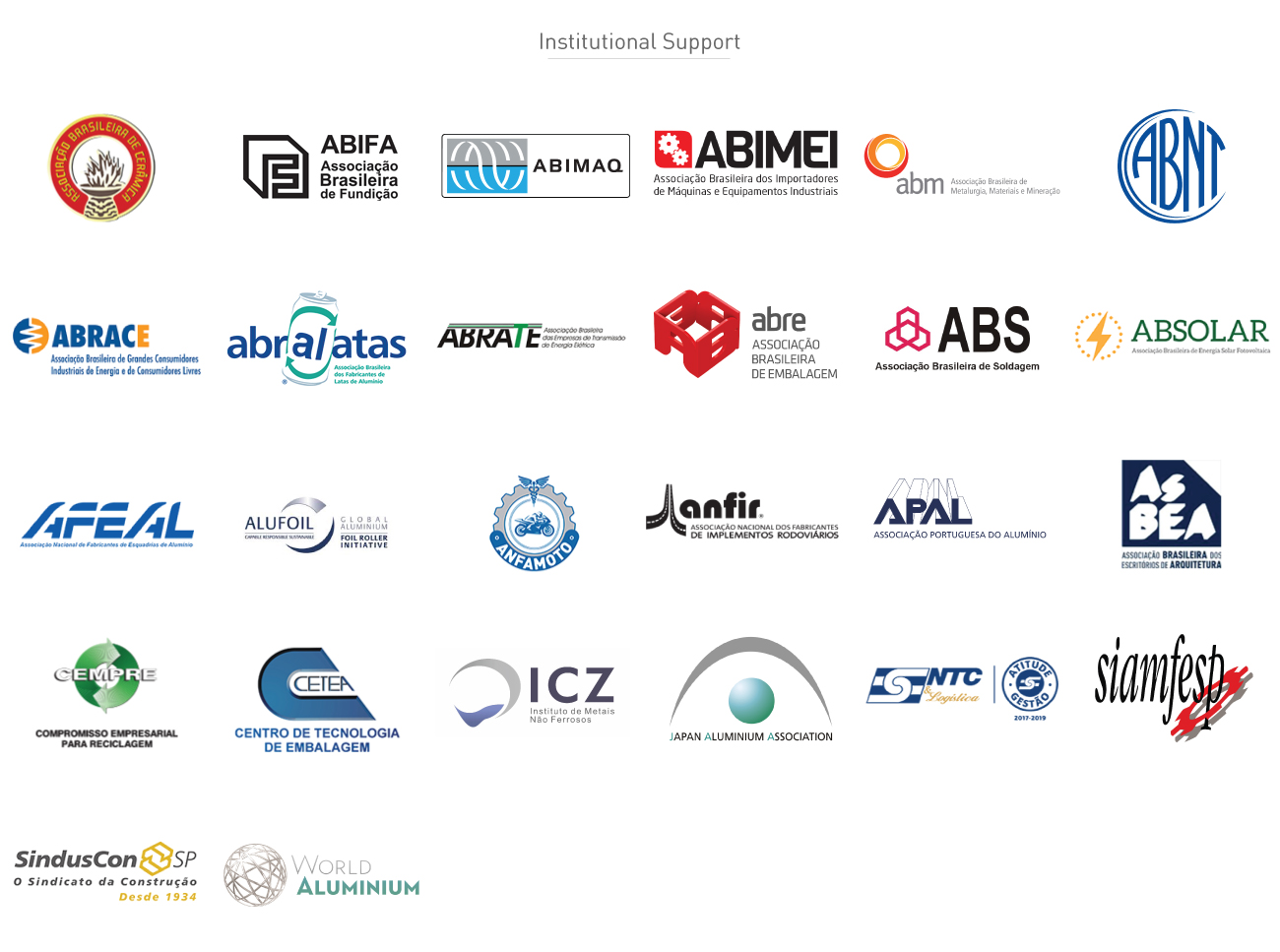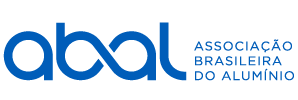Keynote Topics
In order to put together a part of the Congress agenda, technical papers shall be registered based on the following keynote topics:
- Bauxite, Alumina and Primary Aluminum
Included in this subject matter are those papers linked with the steps involving the primary aluminum production processes (e.g. mining, refining and smelting), with emphasis on technological innovation, design, cost reduction/energy, processing, maintenance and environment. This is about a forum of excellence for a real and effective exchange of experiences in this segment.
- Casthouse (plates, billets and parts)
The papers related to aluminum smelting in the form of plates, billets and ingots, which subsequently undergo mechanical processing, continuous casting processes for sheets and bars, as well as casting-related part processes make up this theme. It is intended, therefore, to address alternative production technologies, process technological innovations, case studies, molten metal treatment to improve the final quality of the product and troubleshooting. Environment-oriented issues (e.g. emissions, waste disposal) shall also be showcased.
- Mechanical processing
For its great ductility and shapeability features, aluminum can undergo all mechanical processing processes, namely: rolling, extrusion, wire and cable manufacturing, union techniques, stamping, machining, forging and extrusion impact. This theme comprises papers that may bring up opportunities for efficiency gains, productivity and quality as well as cost effectiveness, new technologies and/or breakthroughs in current technologies, added by problem solving issues mainly those impacting on the environment.
- Surface Treatment and Corrosion
For many applications, the aluminum natural finish is quite satisfactory, for both its aesthetical appearance and durability. However, aluminum stands out for being suitable to a variety of protective and decorative surface finishes, including anodizing, plating, machining, application of paints and varnishes. Around this theme, the papers shall primarily focus on bringing up theoretical and practical aspects of surface finishes. Other aspects linked with technology innovations in processes and the environment may also be approached.
This technical session also includes papers on Aluminum Corrosion, which is closely linked to surface protection processes.
- Sustainable Development
One defines sustainable development as that fulfilling the needs of present days without compromising the ability for future generations to suit their own needs. This implies in conducting business grounded on the three dimensions: economic, environmental and social. The aluminum industry has good examples of management, projects and accomplishment in this area. Works on sustainable development issues that fit into the above three dimensions are pertinent to the subject, except for papers that fall in other issues such as smelting, casting, mechanical processing and surface treatment.
- Recycling
Recycling is one of the most important attributes of aluminum, for any product made with this metal can be recycled countless times without losing its physicochemical characteristics in the reuse process. The best-known example is the aluminum beverage can, which scrap becomes a new can again, after collection and remelting, with no limits on its return to the production cycle. To take part in this theme, papers showing the current state of recycling technology as well as issues associated with collection, costs and availability of aluminum scrap, alternative processes, disposal of those wastes arising from the scrap remelting process, technological innovations and new cases of success.
- Refractories
Given the growing initiatives in research and development efforts, the refractory used in the aluminum industry has shown significant progress in recent years. The advent of materials with higher technological content, designed to meet the specific requirements of each step in the processes for gathering and remelting the metal, has taken the lead in extending the useful life of equipment and minimizing maintenance costs, resulting in increased competitiveness for companies. The refractory session therefore aims to strengthen R & D initiatives and technological innovation, and encourage the exchange of information and experiences between users and manufacturers of this class of materials.
- New Product Development
Aluminum is the youngest metal today in use by society, with about 130 years of existence. Over the past three decades, outstanding new applications have been and continue to be made using aluminum; there is still a large field to enhance new applications. Thus, in line with its mission of fostering and encouraging the use of aluminum, ABAL keeps stressing this topic in the 7th International Aluminum Congress, for the industrial and research community to submit papers linked with new product development.

See also in 8th International Aluminum Congress
About the Congress
Registration For Papers
Keynote Topics
Additional Information





